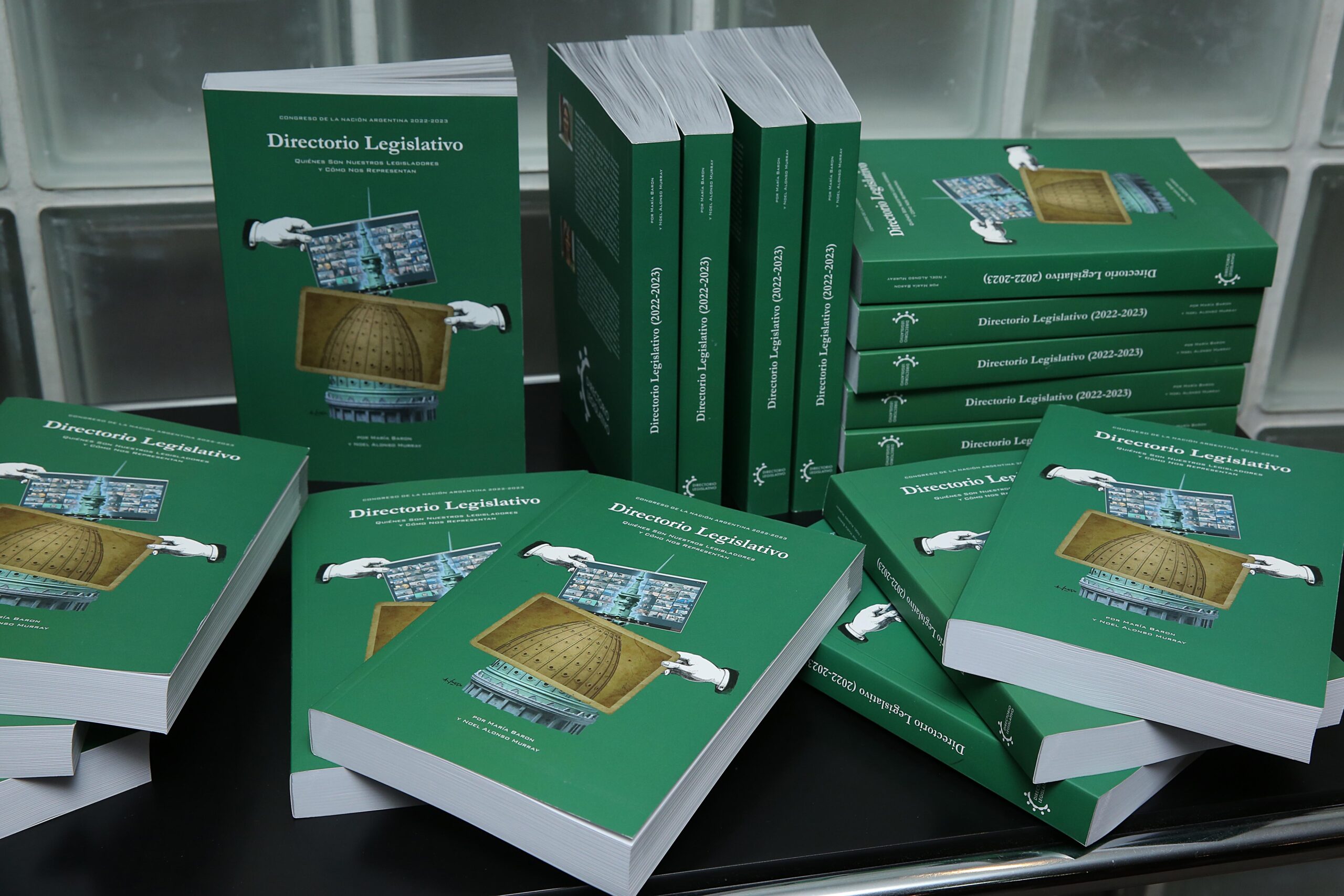A new edition of the Legislative Directory of Argentina is coming up

In December 2023 the seats in the Argentine Congress will be renewed and, as is always the case when there are legislative elections, DL is working on a new edition of the Legislative Directory.
This publication, which was first published in 2000 in Argentina and later extended to Colombia and Mexico, compiles data on all elected deputies and senators, providing a general overview of the chambers and their operation, with detailed information on each legislator.
This is a key tool in terms of transparency and access to public information on congresses, and its preparation involves a face-to-face and remote dialogue with national legislators (in this case, 257 deputies and 72 senators, plus the Vice President of the Nation), so that they themselves complete a form with their personal and contact information, their background and work team, among others.
Through this process, we gather the information with which the files of each legislator are made available to the public. This week, after several months of work in Argentina, we are in the final stretch of the data collection stage, which is then reviewed and laid out for publication.
As usual, the Legislative Directory will have its printed version in book format and also online in its web platform, which will be presented in mid-June.
How we carried it out
To carry out this new edition -the 13th in Argentina- we made an open call through social networks and formed a team of 15 volunteers of different ages and professions, who received constant support and training from DL’s Citizenship and Government Institutions area (CIG).
In this way, the team monitored the assigned offices for three months, from mid-January to mid-April, by telephone, email or social networks, complementing the in-person visits to the Congress by the CIG staff.
These are some of the main data collected so far:
– 250 forms were received, from 195 deputies and 55 senators. This means that 3 out of 4 national legislators answered their forms.
– There was a great renewal of the chambers, so that about 40% of the legislators were not included in the previous edition of the Directory, carried out in 2022.
– Most of the new legislators answered their form (72%).
– 20 national legislators who had not answered their form before, did so this time.
– DL made 8 requests for access to information to both chambers to complement the data provided by the offices.
With the aim of promoting stronger and more participatory democracies, DL continues working to provide information to citizens about who our legislators are and how they represent us.
